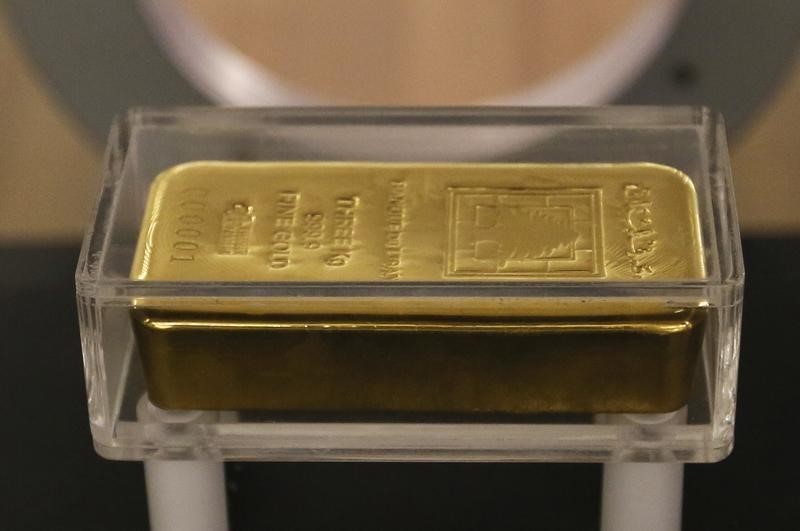Investing.com -- Gold prices drifted lower Tuesday after weak economic data from the U.S. and U.K. only put a modest dint in optimism regarding developments in Brexit and the U.S.-China trade dispute.
U.S. existing home sales fell 2.2% on the month in September, suggesting that any benefits to the housing market from lower refinancing rates have been firmly capped by other concerns. However, the absence of shocks on the U.S.-China trade dispute kept any movement within tight ranges.
Earlier, the Confederation of British Industry said its monthly survey of business activity was more negative than at any time in the last nine years, underlining the degree to which fears over Brexit and the broader global slowdown have combined to hobble the U.K. economy this year.
However, there was still something of a risk-on tone in both Europe and the U.S., as Prime Minister Boris Johnson appeared to be heading for a narrow but important victory on his EU Withdrawal Bill in the House of Commons.
Carsten Mumm, chief economist with German private bank Donner & Reuschel in Hamburg, warned that the possibility of a disorderly Brexit on Oct. 31 still can't be ruled out, given the uncertainty of the political situation in the U.K.
"For the continental European car industry, which has had a torrid time anyway, this would mean that over 10% of all exports would be hit with sharply higher tariffs," Mumm said. "This scenario does not seem to be priced into markets. Most investors appear to be hoping for an agreement between the EU and Great Britain."
By 10:20 AM ET (1420 GMT), gold futures for delivery on the Comex exchange were up less than 01% at $1,488.65 a troy ounce. Spot gold was up 0.1% at $1,486.03.
Silver futures gave up their outperformance of yesterday, falling 0.4% o $17.54 an ounce, while platinum futures were flat at $892.30.
